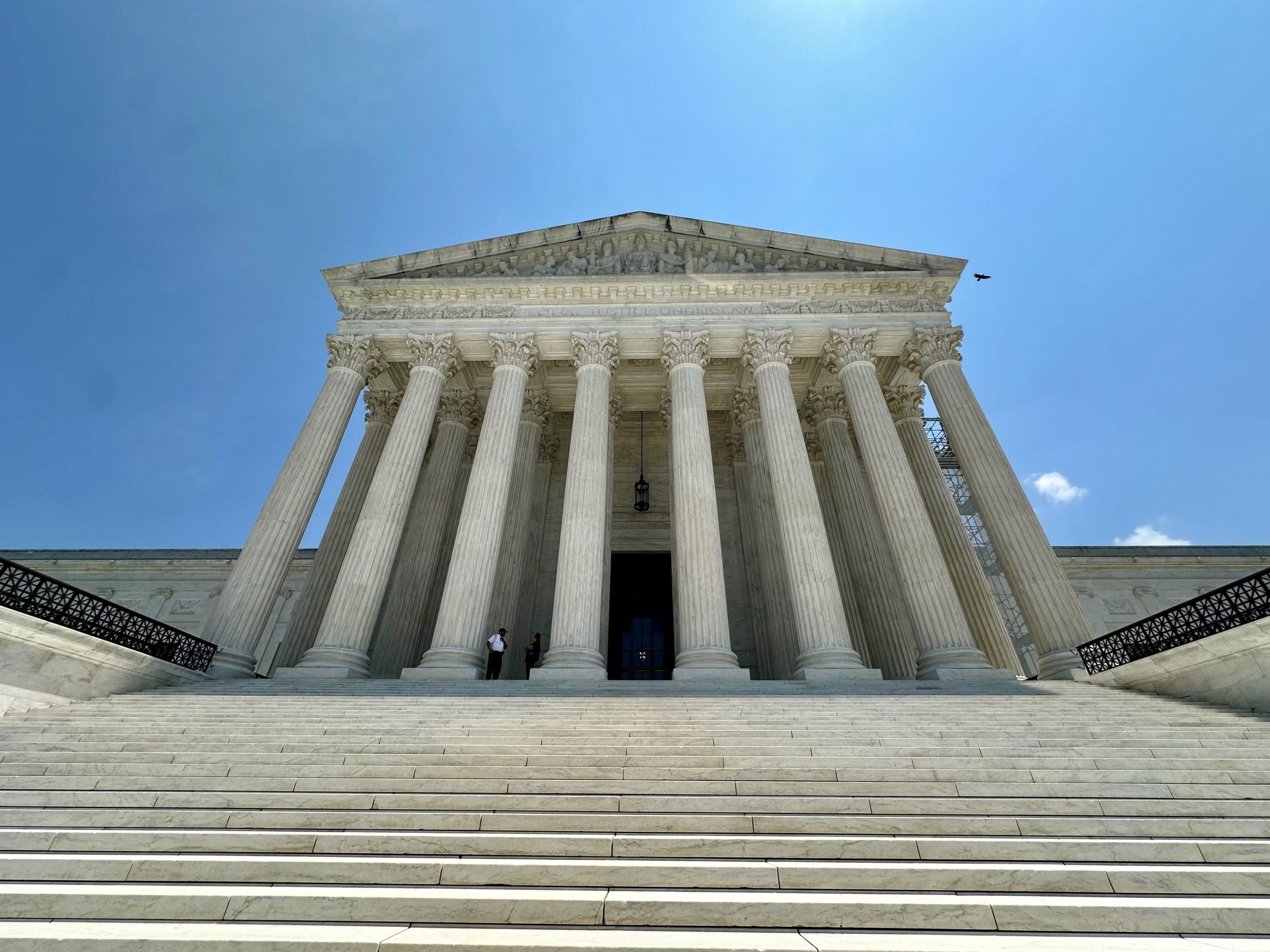Supreme Court will weigh in on effort to found nation’s first religious charter school


The Supreme Court on Friday afternoon added three more cases – two of which will be argued together – to its docket for the 2024-25 term. In a brief unsigned order, the justices agreed to review a ruling by the Oklahoma Supreme Court that rejected an effort by a Catholic online school to become the nation’s first religious charter school. The justices also agreed to weigh in on a question relating to the certification of class actions.
The justices fast-tracked the briefing schedule for the cases, which will allow them to be argued during the last week of the court’s April argument session – the final regularly scheduled session of the term – with a decision to follow by late June or early July.
Justice Amy Coney Barrett did not participate in the decision to grant review. She did not provide any explanation for her recusal.
In Oklahoma Statewide Charter School Board v. Drummond and St. Isidore of Seville Catholic Virtual School v. Drummond, the Oklahoma Supreme Court agreed with the state’s attorney general, Gentner Drummond, that the charter school board violated state law, the Oklahoma Constitution, and the U.S. Constitution when it allowed St. Isidore, a Catholic online school, to become a charter school.
The Oklahoma Supreme Court reasoned that although the state constitution and the establishment clause of the U.S. Constitution “prohibit the State from using public money for the establishment of a religious institution,” “St. Isidore’s educational philosophy is to establish and operate the school as a Catholic school.”
The school and the charter school board came to the Supreme Court in October, asking the justices to weigh in. The school contended that the state supreme court’s ruling “unconstitutionally punished the free exercise of religion by disqualifying the religious from government aid.” What’s more, the school argued, the state supreme court circumvented the U.S. Supreme Court’s cases establishing a right to the free exercise of religion “by transmuting St. Isidore into an arm of the government”: It “reasoned that excluding St. Isidore on religious grounds raised no Free Exercise problem because St. Isidore’s contract would turn the school into a ‘surrogate of the State,’ noting that Oklahoma’s legislature had labeled the charter schools ‘public.'”
The state urged the justices to deny review. It emphasized that the school intends to “serve the evangelizing mission of the church.” And it contended that the justices should not intervene because the state supreme court’s ruling rested separately on its conclusion that the school’s contract with the charter school board violated the Oklahoma Constitution – which is the kind of “adequate and independent” state ground precluding Supreme Court review.
After considering the petitions by the school and the charter school board at three consecutive conferences in January, the justices granted review and consolidated the two cases for one hour of oral arguments (which, under the court’s current practice, will almost certainly last much longer than one hour).
The justices also granted review in Laboratory Corporation of America Holdings v. Davis, in which they will decide whether a federal court may certify a case as a class action when some of its members have not been injured.
This article was originally published at Howe on the Court.
Posted in Merits Cases
Cases: Laboratory Corporation of America Holdings v. Davis, Oklahoma Statewide Charter School Board v. Drummond, St. Isidore of Seville Catholic Virtual School v. Drummond